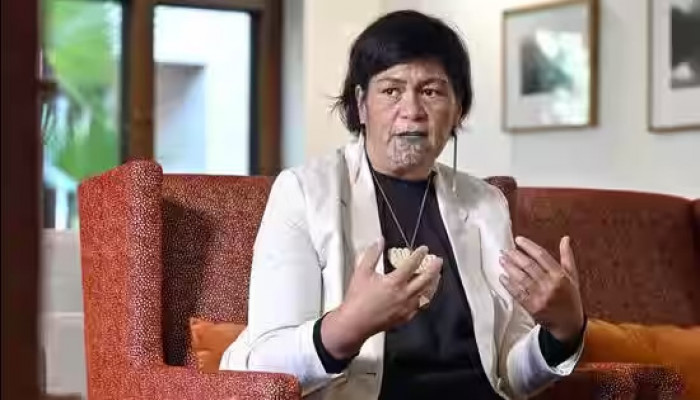We see India as ‘counterbalance to superpower contest’, says New Zealand foreign minister
- In Reports
- 07:44 PM, Feb 08, 2023
- Myind Staff
While giving an interview on Wednesday, New Zealand foreign minister Nanaia Mahuta said that New Zealand perceives India as a “counterbalance to the superpower contest” in the region and wants to take bilateral ties to the next level to boost cooperation in areas ranging from agriculture to education and security.
With the aim to revitalise the bilateral relationship between the two nations since last year, Mahuta said that her discussions with External affairs minister S Jaishankar in New Delhi focused on collaboration in climate action, especially in the Pacific, agriculture, research and technology, and meeting labour needs of New Zealand.
In October 2022, S Jaishankar became the first Indian foreign minister to visit New Zealand since 2001, and three ministers from the island country – Mahuta, food safety minister Meka Whaitiri and trade minister Damien O’Connor – have visited India since September.
These visits, Mahuta underlined, reflected a desire on both sides “to take the relationship to the next level”.
Mahuta added “It’s fair to say that New Zealand sees India as a counterbalance to the superpower contest that’s happening within our own region. The relationship that New Zealand has with India, there’s so many benefits beyond trade. In order for us to reach the full opportunity of those benefits, we need to continue to explore where our shared interests exist”.
In response to a question on whether Russia’s invasion of Ukraine could trigger similar actions in other regions, Mahuta answered “India and New Zealand see ourselves as contributing...to a stable, prosperous and peaceful Indo-Pacific. What that means is we need to work hard together to ensure we uphold the international rules and norms that advocate for territorial integrity and sovereignty”.
Noting that New Zealand has always supported Ukraine’s right to defend itself against Russia’s “unprovoked” aggression, she said this is a “principles-based approach that we would take to any circumstance further afield and also closer within our own region”.
She added, “We’re mindful that there are potentially a lot of countries looking at the Russia-Ukraine situation and reflecting how that might impact on my country if a similar type of aggression were to take place. So people are under no illusion that there is a greater onus of responsibility on superpowers to play their part if we truly want global peace, prosperity and sovereignty.”
Mahuta pointed to several factors underpinning New Zealand’s desire to strengthen ties – India’s economic growth, the country’s fast-growing tech sector and contributions of the Indian diaspora of about 240,000 – and said New Delhi too has signalled its interest about being more active in tackling climate change in the Pacific.
She said “Then there are more traditional kind of opportunities [such as] education...India sees New Zealand as a credible provider of good quality education, where you can have transferable skills that are well regarded across the world”.
After Jaishankar flagged problems faced by Indian students in returning to New Zealand and the mobility of professionals during last year’s visit, Wellington acted to address these issues. “I’m really pleased our minister of immigration has introduced 1,800 post-study work visas that will extend to those people who were affected during the Covid period, [who] had those visas but were unable to take up the opportunity,” Mahuta said.
India and New Zealand are discussing ways to meet the demands of New Zealand’s labour market, including through greater mobility, especially in specific areas such as the health, hospitality and service industry, and horticultural sectors. Jaishankar also invited New Zealand to consider opportunities under India’s new regulations allowing foreign universities to set up campuses in the country, she said.
India is currently the second largest source of international students in New Zealand and in 2019, there were 17,223 Indians pursuing higher education in disciplines such as IT, hospitality, science and engineering.
Image source: Hindustan Times







Comments